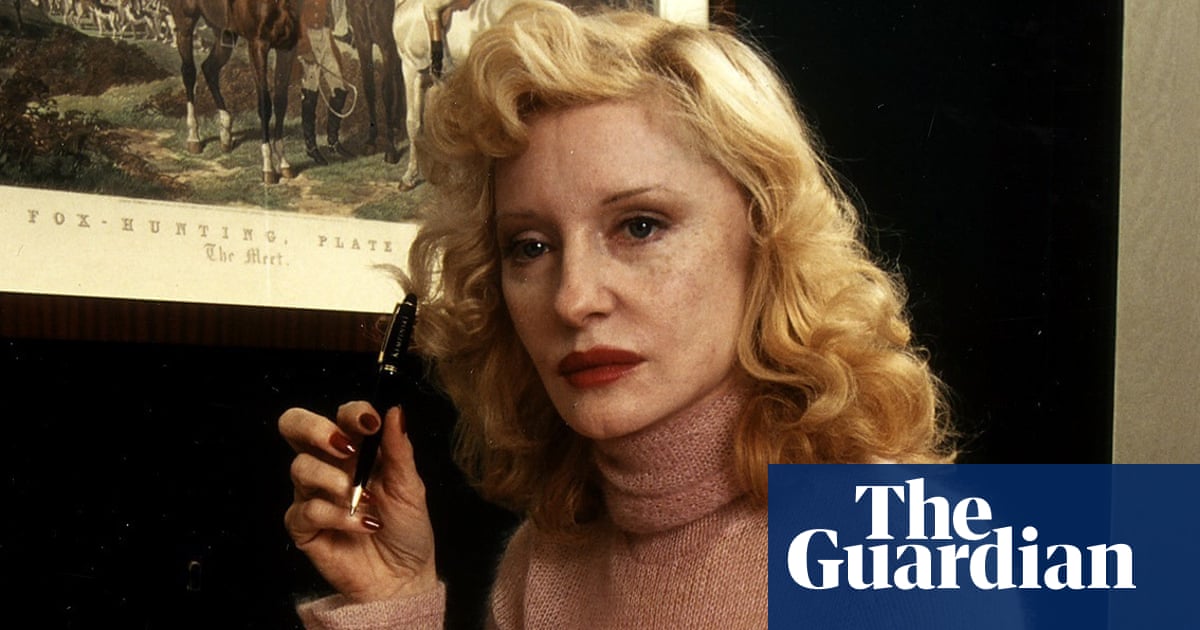
Nicola Brookes was at the lowest point of her life when she turned to the police for help. By the time she met Inspector Anthony Lumb, she had suffered years of online abuse – including death threats, letters sent to her house and relentless trolling.
Her problems began in November 2011, when she sent an innocuous message of support to an X Factor contestant on Facebook. The contestant was being trolled online and Brookes wrote: “Keep your friends and your family close. They’ll move on to someone else soon.” Within hours, she had received hundreds of abusive messages. Brookes was stunned – she was called an “insane old crone”, a “demented witch”. A cloned Facebook account was created in her name, suggesting she was a paedophile and a drug dealer. Her address was even published online. Then the campaign spread to multiple Twitter and Facebook accounts, blogs, online radio and video channels.
Brookes lived alone and was newly disabled; she had recently been diagnosed with Crohn’s disease and had her colon removed. Not surprisingly, she was terrified and began to sleep with a knife under her pillow, rarely leaving her flat. A lack of police action led her to launch a high court battle (her lawyers acted pro bono) which forced Facebook to reveal the identities of the trolls. One turned out to be Lee Rimell, a serving West Midlands police officer, who posted abusive messages about Brookes. In a 2013 misconduct hearing, he claimed he had not intended to offend, only to make “comical” remarks. He was given a “final written warning”, allowed to keep his job and faced no criminal charges. (Rimell said he had “learned a salutary lesson”.)
The abuse continued. On one desperate day in 2016, Brookes emailed every officer from the Metropolitan and Sussex police forces who had ever touched the case to tell them how let down she felt. By now she had been diagnosed with PTSD, anxiety and depression. Only one person responded: Inspector Tony Lumb. “If it wasn’t so serious and tragic, it would be bloody funny,” says Brookes, 54, who lives in Brighton. “The actions of one abusive police officer are what led me straight to another one.”
Lumb emailed, then phoned and then visited. “I showed him the abuse live as it was happening,” says Brookes. “He seemed to listen. He said he’d got it all wrong and would make it up to me. He’d call West Midlands police about Rimell himself. He said he couldn’t believe it was still happening. He was my knight in shining armour. I was easy prey for him. So vulnerable. He gave me hope.”
After this visit, Lumb phoned most days. He texted too and often dropped round. “I began to see him as a friend,” says Brookes. “He’d turn off his police radio, take off his boots, his utility belt and sit on the sofa in his trousers, socks and police polo shirt. Someone with the power to help finally seemed to care – every time he came, he lifted my spirits.” They began to hug goodbye. The hugs became longer. Then they kissed goodbye too.
Brookes says Lumb played with her. “He’d become my rock,” she says. “There were times, out of the blue, when he’d disappear – he wouldn’t reply to my texts and I’d panic. I felt I was losing an ally. He held such sway.” After one spell of ghosting, on an evening in December 2016, Lumb texted to say he was in a nearby pub, could he drop in? He arrived late, the two drank wine, finally had sex for the first and only time – and then he left.
“After that, I emailed him and messaged, but heard nothing,” says Brookes. “And that’s when the penny dropped. He’d used me, gained my trust and now he was gone – and all that promise of support, the feeling that someone was going to help me, all that was gone too. I felt disgusted by him and disgusted with myself. I was just destroyed.”
The murder of Sarah Everard by Wayne Couzens, a serving police officer – one who had already been reported for indecent exposure and was nicknamed “the rapist” by colleagues – has put sexual misconduct by the police back under the spotlight. While Lumb’s behaviour was not on that extreme scale, the actions of Couzens were the worst imaginable result of allowing an unhealthy culture to exist within the police force.
There were earlier, supposedly watershed cases. The 2010 rape conviction of Stephen Mitchell, a police officer with the Northumbria force, sparked an urgent review into police sexual misconduct. (Mitchell, who was given two life sentences, had targeted vulnerable women in custody, including heroin addicts and shoplifters. He offered to help, then asked for sexual favours.) One outcome was a new national strategy in 2017, which was designed to improve detection and prevention of sexual misconduct by police. It also required forces to make public the results of misconduct hearings.
Despite this, it is extremely difficult to measure the extent of the problem. A recent investigation by Channel 4’s investigative series Dispatches found, through Freedom of Information requests, that 2,000 police officers have been accused of sexual misconduct over the past four years. Extensive research by Dr Terri Cole, principal academic in forensic psychology at Bournemouth University, suggests a third of cases are similar to Brookes’ experience: sexual relationships with victims or witnesses. “The women targeted here seem to be the most vulnerable,” says Cole. “They are often victims of domestic abuse. Others are victims of sexual assault or have some kind of mental health problem.”
The next most common area of police misconduct is abuse of colleagues. Other charges include child sex offences and rape.
In recent weeks, more women have come forward. One woman told the BBC she lost trust in the police after she was violently mugged and the attending Metropolitan police officer asked her out (he was given a final written warning for three years).
Patsy Stevenson, who was arrested at a vigil for Sarah Everard, has said she was left “terrified” when “more than 50 police officers” contacted her on Tinder.
Sue Fish, a former chief of Nottingham police, now retired, told the Guardian that when she was a probationary officer it was seen as “normal” for officers to have sex with vulnerable women they met in the course of duty.
Freya, a survivor of domestic abuse by her police officer ex-partner, whose case is one of 19 in a police super-complaint lodged by the Centre for Women’s Justice, believes the true figures relating to police sexual misconduct will never be known. “Women who have been sexually abused go to the grave without saying it, but when it has come from the police – and speaking out would mean that the police would be listening, they would be investigating it – what can you do then?” Freya recently launched Police Me Too, a site where women can tell their stories anonymously. “So many women don’t get heard and most don’t get any justice,” she says. “In the wake of Sarah Everard and the Met inquiry, I wanted to show that this isn’t about one force and it certainly isn’t new. The behaviour goes back decades.”
Dr Julia Patterson, a former psychiatrist, recently posted an account of her experience of being “pursued” by a police officer. (Her Twitter thread prompted many women to add similar stories.) When she was a medical student, new to London, she was viciously mugged. Police were called and her bag was found in a nearby bin. However, the police took it away as evidence – in it were Patterson’s keys, passport and only ID, phone and purse.
“I was left without my stuff, which in itself was a problem, but the officer who had taken my replacement phone number began to call quite regularly over the next few weeks,” she says. “I’d never been a victim of crime before, I was far from family and friends, experiencing pretty intense PTSD symptoms, so I was very vulnerable. He’d call to say he was checking in and wanted to keep me updated – but really, there was no information except: ‘We don’t know what’s happening, we haven’t found anybody.’
“My friends started to think this was weird – they were calling him PC Perv. I didn’t have much awareness of the protocol and was keen to get my stuff back. I saw him as someone to trust because on the day of my attack, he’d been someone who helped. Finally, one day he rang and said: ‘I’m going to come clean about why I’ve been calling so much. It’s actually because I fancy you and I was hoping I can take you on a date.’
“I was really shocked and embarrassed – there was no #MeToo and part of me worried that I’d given him the wrong impression. I politely declined and he was pleasant enough but, after that, I’d lost my point of contact and really struggled to get information on where my things were.” Eventually, she traced her bag to a repository on the outskirts of London. “I have wondered if he sent it there after I turned him down, and if he took it initially as a bit of a device. I don’t see why they needed it as evidence as I don’t think they pursued the case at all.”
The experience stayed with her. “It certainly affects your trust in authority,” says Patterson. “You do think, if something happened again, would I be taken seriously? What would the behaviour be like? No ill has come of it, but my view is that this is a spectrum of behaviour. What would have happened if, as a 19-year-old vulnerable person, I had agreed to meet this police officer? What kind of relationship would that develop into? Those questions have gone through my mind lots of times since.”
Cole has been asked by the National Police Chief Council to suggest strategies to reduce this kind of behaviour and after five years of research has identified key areas. Enhanced vetting for new recruits and transferees – especially those with access to vulnerable victims – beyond the standard criminal record/driving offences and local intelligence is what she recommends. This could mean speaking in depth to line managers, police trainers and the use of psychometric tests. There is good evidence that certain behaviour and attitudes, such as low levels of conscientiousness and a poor work ethic, are red flags.
Another suggestion is to ensure that police re-read and re-sign the police code of conduct at an annual appraisal. This states that police must not establish or pursue a sexual or emotional relationship with someone they meet in the course of work who might be vulnerable to an abuse of trust or power. “Sometimes, police officers will say: ‘I had consensual sex with someone, it shouldn’t matter,’” says Cole. “If they signed the code six months ago, as opposed to 10 years ago when they first joined, they have less of a defence.”
Cole also suggests that anyone who has contact with police could routinely be given a leaflet outlining what to expect and what counts as misconduct. “Most of these relationships were consensual,” she says. “They were inappropriate, but not necessarily criminal. Lots of victims didn’t know this was malpractice.” (This was true for Brookes, who once asked Lumb if relationships like theirs would be frowned upon and was told no, that it was fine because she wasn’t officially his case.)
Cole is also calling for consistency in misconduct hearings. One study she made of 155 cases showed a wide range of outcomes – for example, police officers from the south of England were more likely to be dismissed for having sex with a victim than police officers in the north of England.
Lumb ended up in a misconduct hearing. In January 2017, Brookes blurted out what had happened with Lumb to an officer from the Met who was working on her stalking case. The officer – a woman Brookes trusted – reported it. By March, the Independent Police Complaints Commission, now the Independent office for Police Conduct (IOPC), had begun to investigate. It turned out that Brookes was not Lumb’s only victim; his behaviour was first reported to Sussex police in 2012 after he groomed and had sex with a woman charged with assault and possession of cannabis. (“I didn’t expect a sexy, beautiful woman to open the door to me,” he said when he first called at her house on duty.)
Despite ample evidence in the form of texts and emails, Lumb denied the allegations made by Brookes. He said she was a “serial complainer”, “mad as a box of frogs” and had a colostomy bag “which is not really conducive to wanting to have sex with someone”.
“That demolished me,” says Brookes. “Before Lumb, the last time I’d had sex was in 2010 with the father of my daughter, who was then 18. Lumb had reassured me, asked to see my scars, the bag – and then for him to say that ... I’ve not had a relationship since. That part of my life is over.”
Ultimately, the hearing believed Brookes and Lumb was dismissed for gross misconduct. The IOPC also referred the case to the Crown Prosecution Service but the CPS decided not to proceed.
There was no criminal charge against Brookes’s police officer, harasser Lee Rimell, either – although his associate, Nicky Wright, was sentenced to six months in prison in August 2018 for his obsessive trolling campaign against her. Shortly after Wright’s trial, Rimell resigned while he was under investigation by the West Midlands police professional standards department. In February this year, that department sent Brookes a short letter to confirm that Rimell had breached “standards of professional behaviour” and that this was “misconduct”. “After 10 years, that’s all I got,” she says.
It is hardly surprising that Brookes is reluctant to advise other victims of police sexual misconduct to come forward and report it. “Why bother? Where’s the justice? They will chew you up and spit you out,” she says. “My advice would be to look at civil action from the start. Get a lawyer – and get therapy.”












